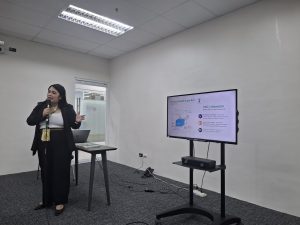Davao City, the bustling metropolis of Southern Mindanao, is experiencing rapid urbanization and economic growth. To address the accompanying challenges of traffic congestion and enhanced connectivity, the Department of Public Works and Highways (DPWH), in partnership with the Japan International Cooperation Agency (JICA), is undertaking a major infrastructure project: the Davao City Bypass Road. This ambitious endeavor is poised to transform Davao City’s transportation landscape and unlock its full economic potential.
Project Overview
The Davao City Bypass Road is a 45.5-kilometer, four-lane bypass road that will connect Barangay Sirawan in Toril, Davao City, to Barangay J.P. Laurel in Panabo City. A key feature of this project is the construction of a 2.3-kilometer mountain tunnel, the first of its kind in the Philippines. The bypass road will also include several bridges, underpasses, and overpasses to ensure seamless connectivity.

One of the key components of the Davao City Bypass Road is a 2.3-kilometer road mountain tunnel, which is set to become the longest in the Philippines. (Photo courtesy of DPWH)
Project Timeline and Current Status
The Bypass Road project in Davao City is divided into six contract packages. Contract Package I-1, which includes the mountain tunnel construction, commenced in November 2020. As of December 2024, significant progress has been made, with the tunnel excavation reaching over 80% completion. Package I-1 of the project is expected to be completed by the second quarter of 2025.
Contract Package I-3, on the other hand, began construction in December 2023, which will add a 5.6-kilometer, four-lane road with a bridge, two tunnels, and an overpass to complement the mountain tunnel being built under Contract Package I-1. Meanwhile, Contract Package I-2 is moving forward with its civil works contract after the necessary approvals were issued in November 2023.
Despite facing challenges such as unfavorable weather conditions that impact construction and materials delivery, the DPWH remains committed to mitigating these logistical issues and delivering the project as scheduled.
Another section of the bypass, Package 2, is funded by the Philippine government and divided into three contract packages. Contract Package II-1, which involves constructing a 1.28-kilometer road and seven bridges, is currently 36% complete and expected to be finished in the first quarter of 2026.
Contract Package II-2, covering a 3.52-kilometer stretch, has achieved 14% progress since starting in August 2023. The final 9.7-kilometer section under Contract Package II-3 is slated for procurement in the third quarter of 2024, completing the Davao City Bypass Project. The estimated total cost of this significant infrastructure project is P46.80 billion.
Impact on Davao City’s Economy
The Davao City Bypass Road is anticipated to impact Davao City’s economy and overall development profoundly. By diverting traffic from the city center, the bypass road will significantly reduce travel time between Toril and Panabo City from 1 hour and 44 minutes to 49 minutes. This will alleviate traffic congestion, improve logistics, and enhance the overall efficiency of transportation within Davao City.
The bypass road will also improve connectivity between Davao City and other areas in Mindanao, facilitating the movement of goods and people. This will open up new opportunities for trade, tourism, and investment.
It is also expected to boost economic activities since the improved accessibility and reduced transportation costs will stimulate trade within Davao City as well as between the City and its surrounding areas. This will lead to the growth of various sectors, including agriculture, manufacturing, and tourism.
Furthermore, the economic boost brought by the Davao City Bypass Road will create more jobs and livelihood opportunities for local residents, especially for those residing along the thoroughfare’s route. This will contribute to poverty reduction and improve the quality of life for these residents.
The project utilizes an environmentally friendly design and construction practices to minimize its impact on the surrounding environment. This dovetails with Davao City’s commitment to sustainable development.
Beyond its economic benefits, the newest major bypass road in the country will contribute to the overall development of Davao City in several ways, such as through improved urban planning. The road will facilitate better urban planning by redirecting traffic flow and creating new development corridors. This will lead to a more organized and efficient urban landscape.

Davao City Bypass Road project. (Photo courtesy of DPWH)
It will also improve road safety by providing motorists with an obstruction-less and more efficient alternative route. This will reduce the risk of accidents as well as enhance motorists’ and transport safety in the region.
Furthermore, the improved accessibility and connectivity the bypass road brings will increase land values in areas surrounding the project. This will benefit landowners and contribute to the city’s overall economic development through a possible surge in business and infrastructure development in the surrounding area.
For local residents in Davao City, the project is a welcome development. Davao businessman Atanacio Leones expressed gratitude for the project: “This is a big help since we have a better road alternative just in case the traffic gets heavy within the main road. Once completed, it will serve many motorists and commuters and ease Davao’s traffic situation. So, daghang salamat for this project.”
The Road Ahead
President Ferdinand R. Marcos Jr. promised that the entire Davao Bypass Road project will be completed before his term ends in 2028. “Tiyak na makakatulong ito sa pagpapabuti ng sitwasyon ng trapiko at pagpapabilis ng galaw ng inyong transportasyon, at pagpapaunlad ng negosyo, turismo, at agrikultura,” he said during one of his visits to Davao City.
“Patuloy po ang pagsisikap ng gobyerno na mabigyan kayo ng mga proyekto na makakatulong sa pagpapalago ng inyong mga sakahan at magpapatatag sa sektor ng agrikultura,” he added.
President Marcos said the timely completion of these infrastructure projects would provide enormous benefits for Davao City, such as convenience for residents, faster transport of goods, and enhancement of the region’s tourism industry.
The Davao Bypass Road is just one of the many infrastructure projects nationwide. This project is a testament to President Marcos Jr.’s commitment to increasing the country’s infrastructure development. All of these projects are among the cornerstones of the National Development Plan of the Marcos Jr. administration. (PTV)



